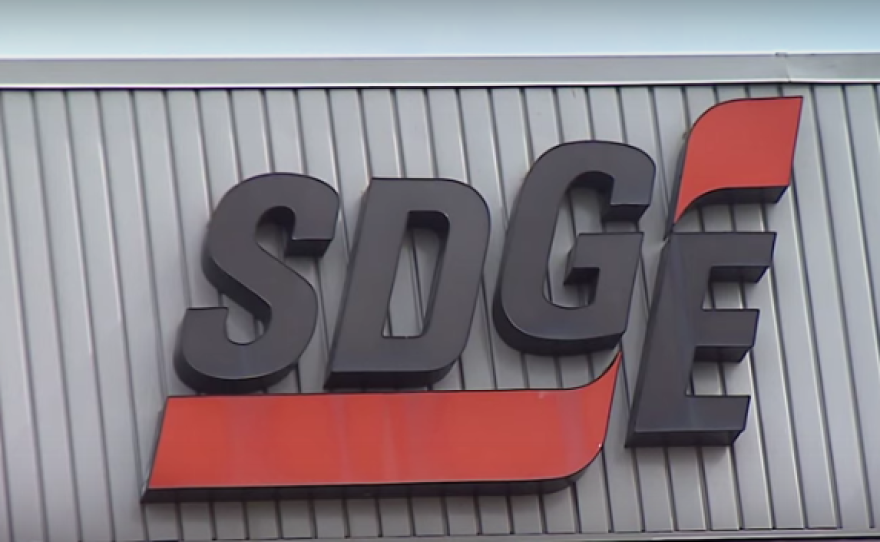There has been a few months of uncertainty over whether an independent marketing district formed by SDG&E and its parent company Sempra Energy can lobby against the alternative energy program called community choice aggregation.
The matter seems to be resolved after the California Public Utilities Commission, or CPUC, approved plans for the marketing district called Sempra Services in an advice letter sent last week. But just last month, a CPUC spokeswoman told KPBS an investigation is still ongoing into whether lobbyists for Sempra Services broke state law by meeting with elected officials before their organization received full approval.
"We are looking into the issue to determine the full details of the communications and whether there were violations on the prohibitions on communicating on (community choice) without the formal approval of the advice letter," said Terrie Prosper, the CPUC spokeswoman, in an email. "This issue is not impacted by the approval of the advice letter."
RELATED: State Commission Investigating SDG&E For Lobbying Against Community Energy Program
The investigation centers around an alternative energy program called community choice, which would allow cities and counties to bypass SDG&E and decide on their own where to buy energy, which could allow them to choose more renewable energy sources.
What is community choice aggregation?
Right now, San Diego Gas & Electric provides power through its system of lines and wires to every city in San Diego County and southern Orange County. SDG&E buys the electricity from a variety of sources, including natural gas plants, hydroelectric dams and wind turbine farms.
If a city goes with community choice aggregation, power would still go through SDG&E’s grid, but the city would buy the energy, not the utility. That allows cities to have more control over how much of their energy comes from renewable sources and the cost for that electricity.
State law prevents utilities from marketing or lobbying on community choice aggregation unless they set up an independent organization that is not funded by ratepayers.
That's what Sempra Energy did by establishing Sempra Services, but until last week that organization had not been completely approved by the state.
However, people working for Sempra Services were meeting with San Diego elected officials anyway. They met with Mayor Kevin Faulconer and three San Diego city councilmembers, as well as four San Diego County supervisors.
RELATED: Sempra May Have Broken State Rules By Lobbying On Energy Program
Now that Sempra Services has received full approval, there is no question about whether those lobbyists can meet with elected officials or do other work to market against community choice. That's as long as SDG&E and Sempra Services follow the terms laid out in the letter from the CPUC.
The letter says every six months SDG&E must supply a list of all Sempra Services personnel who also work for SDG&E and provide a "justification as to why each individual identified has been deemed to not have engaged in 'marketing or lobbying.'"
Amber Albrecht, a spokeswoman for SDG&E, said in an email that SDG&E believes Sempra Services was approved last summer, so all of the lobbying done up until now has not been against the law.
"The California Public Utilities Commission incorporated certain points into SDG&E's compliance plan by reference, and required SDG&E to edit its approved compliance plan to make those points explicit. That process is now complete by the (advice letter from last week)," she said. "Sempra Services Corporation is a separate company from SDG&E. It is not ratepayer funded and it is not a utility subject to the California Public Utilities Commission’s regulation. A compliance plan is required before SDG&E can engage in lobbying or marketing against community choice. It is not required for separate companies. Note that SDG&E is not engaging in any lobbying or marketing against community choice."
In August, the California Public Utilities Commission gave initial approval to Sempra Services but said it still needed more information from SDG&E.
Then in December, the commission said marketing and lobbying on community choice was suspended because SDG&E had not given enough information to show Sempra Services is independent enough from the utility.
The California Public Utilities Commission's letter last week said SDG&E has now provided that information.







